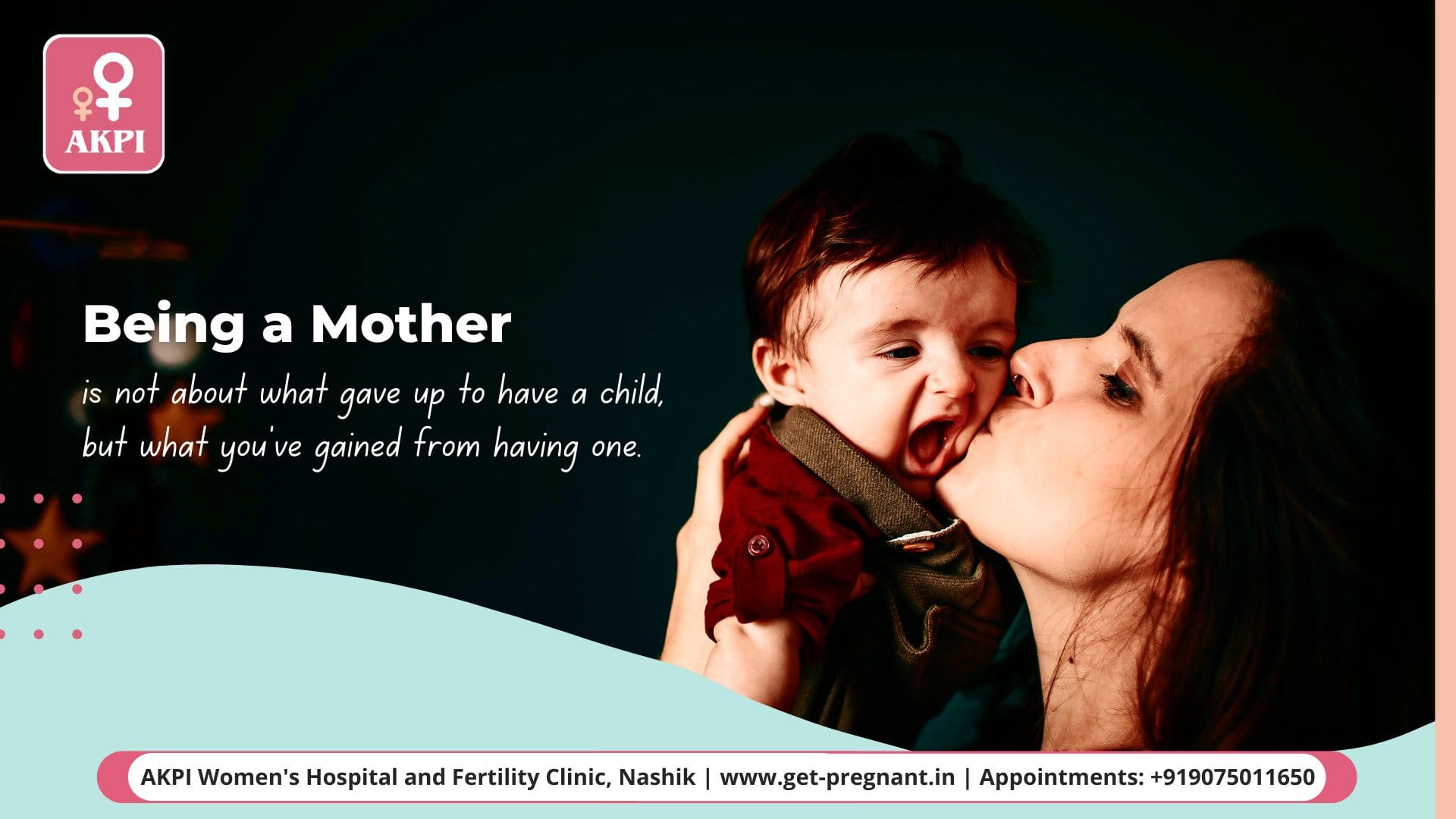
The Test Tube Baby Process
Are you longing to hear the sounds of tiny feet in your home but your journey to parenthood isn’t moving forward? Infertility can be a frustrating and isolating experience, leaving you wondering if your dream of a family will ever come true. Here, advanced reproductive technologies like test tube baby process or In Vitro Fertilization (IVF) have helped countless Nashik couples achieve their dream of parenthood. Let’s explore what it is and how it can turn your family dreams into reality.
Shreya and Rahul, both teachers in leading schools in Nashik, dreamt of a complete family for years and had tried everything – a healthy lifestyle, consulting doctors, but traditional methods just weren’t working. They felt a deep sense of longing and were on the verge of giving up hope when they learned about test tube baby [TTB] or ivf treatment in Nashik at AKPI’s clinic.
Initially apprehensive, they were comforted by the clinic’s warm and professional approach, as the engaged with the doctors who thoroughly evaluated them, explained the IVF process in detail, and addressed all their concerns regarding costs and other FAQs. The emotional support throughout the journey that the couple received was invaluable, and th IVF procedure itself went smoothly. Shreya remembers how they were so nervous and yet hopeful during the transfer, as the wait for the pregnancy test felt like forever!
Today, their beautiful daughter, Tara, brings endless laughter and love into their lives, as they are forever and incredibly grateful to the doctors and staff at the AKPI Nashik clinic. And this is just one story of many happy couples in Nashik who have achieved parenthood through IVF.
Before After a Test Tube Baby Process
Pre-treatment evaluations: Your doctor will start with the initial consultation and tests, to be done on both partners, so they can diagnose the reason for infertility and determine if IVF is the right course of action.
Post-treatment pregnancy monitoring: Once the test tube baby process is completed, it’s crucial to conduct post-transfer monitoring to see if implantation is successful and the pregnancy progresses normally.
During Test Tube Baby Process: Four Steps
Every couple planning to have a baby and finding it difficult to conceive look hopefully at TTB treatment. And not surprisingly, same is the case for couples in and around Nashik District. So let’s take a look into why test tube baby (of IVF treatment) is done and how it is done in some of the leading IVF clinics in Nashik.
- Egg production simulating by hormone therapy – Here gonadotrophin injections are used to stimulate the woman’s ovaries for the development of multiple follicles. A single injection of HCG at the end induces final maturation.
- Retrieval of eggs from the ovary – Here the mature eggs are retrieved from the woman’s ovaries by using a fine needle. Doctors may use a mild sedative or anesthetic to the woman so that any pain or discomfort is minimized during egg retrieval process.
- Fertilization by sperms taken from the male partner – Here the mature eggs and the fresh sperm sample provided by the male partner are combined to allow fertilization. The IVF specialist regularly checks for signs of fertilization and healthy growth of the embryos, and the healthiest ones are selected for transfer.
- Introduction of the fertilized eggs into the uterus – This is done after a few days, when the eggs have fertilized (embryo) and are ready to be injected back into the uterus. Using a catheter, the doctors transfer one or multiple embryos into the uterus of the woman.
Frequently Asked Question:

IVF Clinic Nashik December 22 Updates – IVF Treatment In Nashik – IVF Centre in Nashik
Assisted Reproductive Technology: Decoding Path to Parenthood Prowess
Best Pregnancy Test Kits Online: Accurate & Affordable Kits in Nashik
June 2022 IVF Treatment In Nashik Updates – IVF Treatment In Nashik – Top IVF Centre in Nashik India

Nashik, Maharashtra 422001
IN
Website: https://www.get-pregnant.in/ · Facebook · Instagram · Other Link
Related Posts
Disclaimer: The information provided on this site is intended for your general knowledge only and is not a substitute for professional medical advice or treatment for specific medical conditions. You should not use this information to diagnose or treat a health problem or disease without consulting with a qualified healthcare provider. Please consult your healthcare provider with any questions or concerns you may have regarding your condition.









